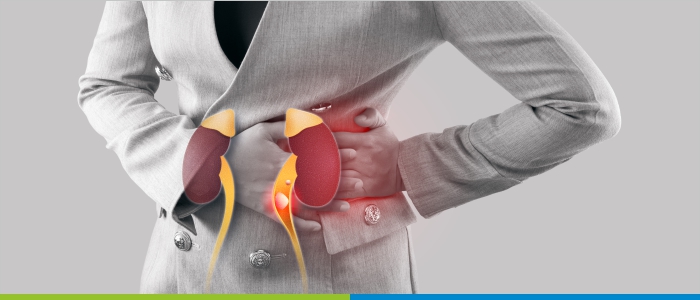When to See a Urologist: Consult Best Urologist in Kukatpally

How Do You Know That You Need to Consult a Urologist?
With age, an individual’s health needs change, and the risks posed by specific health issues increase. People should routinely consult a doctor after they turn 40, as they are at higher risk for certain health conditions that were less likely when they were younger. The earlier the condition is diagnosed, the better the treatment outcomes will be.
Urology is a branch of medicine that diagnoses and treats diseases and conditions affecting the male reproductive system and urinary tract. The urinary system is vital in keeping the body clean by filtering out waste products. The most critical parts of the urinary system include the bladder, kidneys, ureters, and ducts. The urologists also take care of all kinds of problems related to the reproductive system and the adrenal glands on top of the kidneys. Since the bladder and other organs of the reproductive system are interconnected, an issue within one can frequently affect the other.
Conditions Treated By Urologists
Here are a few conditions treated by Urologists
Urinary Tract Infections (UTIs)
UTIs, some of which may not respond to treatments, could actually indicate more severe diseases, such as interstitial cystitis, also known as painful bladder syndrome. A urologist can diagnose UTIs and suggest the most suitable treatment.
Frequent Urination or Leaking Urine
You may have urinary incontinence or overactive bladder if you constantly feel like visiting the toilet, and sometimes, you unintentionally leak urine. Urologists tackle the symptoms in many ways, including lifestyle changes, medicines or even surgery.
Kidney Stones
Lower abdominal pain or back pain, blood in the urine, and a change in urine colour may be some indications of kidney stones. Urologists can find and treat this painful condition that may lead to complications if left untreated.
Erectile Dysfunction (ED)
Erectile Dysfunction is a medical condition that affects many men. However, it can be treated. A urologist may diagnose whether the problem is psychological or physical and recommend which treatment method would suit you the best. Treatment generally includes medication, lifestyle modification, or other advanced medical procedures.
Pelvis Pain
Chronic pelvic pain can have many causes, such as prostatitis, IC, cancers of the urinary or reproductive systems, etc. A urologist is trained to diagnose and identify sources of any health issues and offer a course of treatment that will help with pain management and improve the quality of life.
Male Infertility
Male infertility is quite common in the present times. A urologist can conduct proper examinations to find out the cause of infertility and offer possible treatments that might help.
Benign Prostatic Hyperplasia (BPH)
With age, men are likely to suffer from either benign prostatic hyperplasia, or BPH, or prostate cancer. BPH is the medical term for an enlarged prostate and can cause you trouble in urinating, particularly when you need to pee in a hurry or pee more often. You may feel pain or notice a weak pee stream. As men age, the risk for prostate cancer increases, and early detection makes it easier to get a suitable treatment.
Changes in the Testicles
If you feel lumps or bumps in your testicles or notice some changes, you should see a doctor immediately. Problems in the testicles could be symptoms of a wide range of health issues, from less threatening conditions to serious ones, including cancer.
What to Expect When You Visit a Urologist?
It’s important to be prepared for the doctor’s consultation. The doctor would need to run some tests just to understand what is wrong and how to treat you the best. A rectal examination might be necessary to investigate the state of the prostate in men, while in women, it would be necessary to do a vaginal examination. For the tests, samples of urine and blood, and perhaps semen samples, will be taken from your body. Such tests will help doctors determine what is happening and assess overall health. Ultrasound or CT scan may also be done to get clear images of the reproductive system and the urinary tract. This can help doctors measure the size of the kidney stone or growth, among other conditions.
Why Would I Need Specialist Treatment?
Many patients feel embarrassed discussing their sexual and bladder health. But, you have to take care of such problems immediately because early evaluation and treatment can improve your quality of life, relieving symptoms that might otherwise come in the way of daily life. Above all, we at Omni Hospitals give your comfort and well-being the highest priority. Our committed team is here to create a comfortable space where you may share your concerns without feeling embarrassed. It is not easy to talk about health problems; therefore, our caring staff is ready to listen to you without any judgments. Designed to cater to your unique health needs, we are here to give you a proper diagnosis and prompt treatment you need.
Omni Hospitals, Kukatpally
If you want to get the best treatment for your urinary problem, visit Omni Hospital. We have the best urologists who offer tailored care for every individual. Whether it is a long-standing or recent symptom, our medical treatment can be the best route for maintaining good health. Omni Hospitals, Kukatpally is reputed for its state-of-the-art diagnostic and treatment options, state-of-the-art facilities and best-in-class care.
Conclusion
Knowing when to visit a urologist ensures that any issues with urine or reproductive health are addressed early for positive treatment outcomes. New health issues start surfacing as a person ages or when there’s a lifestyle change. However, most of them can be dealt with if proper medical care is provided. Selecting the best treatment centre is one of the main factors affecting the standard of care you will receive. So, visit Omni Hospitals, Kukatpally, for the best urinary care. We ensure high-class treatment and bespoke care to help you achieve optimal health.
This article has been medically reviewed by Dr Raveendra Reddy, Urologist

